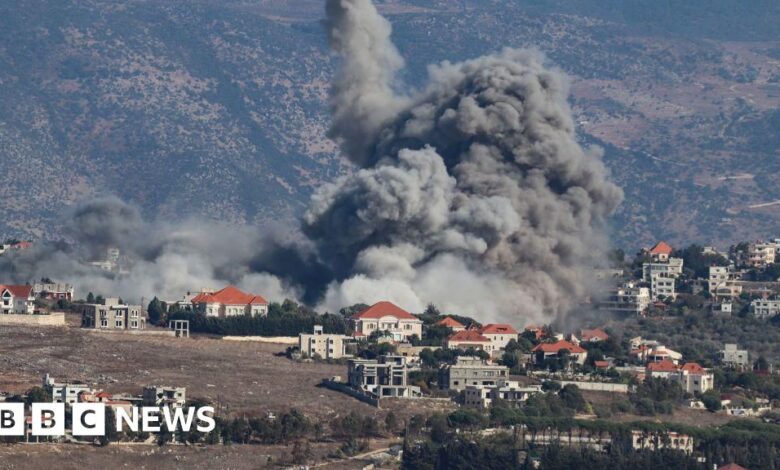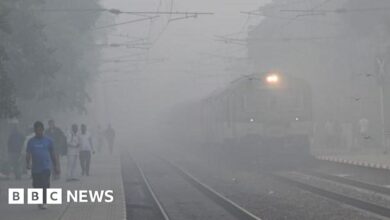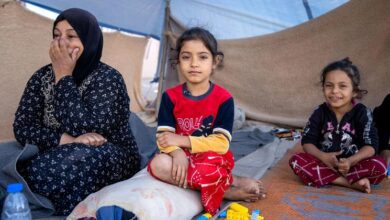Israel attacks Hezbollah with ‘full force’ despite calls for a ceasefire

Israeli Prime Minister Benjamin Netanyahu has asked the country’s army to continue fighting “all-out” against the armed group Hezbollah, despite calls for a ceasefire from the US and other allies.
Lebanon’s Health Ministry said at least 92 people were killed in Israeli airstrikes on Thursday, with hundreds more killed since the strikes escalated on Monday.
Hezbollah confirmed that an airstrike on an apartment building in south Beirut killed the head of its drone unit, Mohammad Surur.
Fears of an all-out war between Israel and Hezbollah are high, after Israel sharply escalated its attacks on Lebanon since Monday.
The increase in hostilities has prompted the 12-member bloc – which includes the US, UK and EU – to proposed a three-week ceasefire between Israel and Hezbollah on Wednesday.
This proposal initially received high hopes after Israel’s ambassador to the United Nations Danny Danon said his country was “open to ideas”.
But by Thursday, it had been completely rejected by Israeli politicians.
Landing in New York to attend the United Nations General Assembly, Mr. Netanyahu said Israel would “not stop” in Lebanon until it achieved all of its goals, “which is primarily to bring the people The North returned home safely.”
The White House later said the ceasefire proposal was “coordinated” with Israel, despite Netanyahu’s assertion, just hours later, that his country would continue to fight.
Speaking in New York, British Prime Minister Sir Keir Starmer called for “an immediate ceasefire to create space for a diplomatic solution” to resolve the conflict in Lebanon.
He said the conflict could spread into a war that “no one can control”.
About 70,000 Israelis have been displaced from the north of the country since the conflict between Israel and Hezbollah began nearly a year ago.
In Lebanon, about 90,000 people have been displaced since Monday, with an additional 110,000 displaced, according to the United Nations.
Until Thursday, the Israeli military said it had struck Hezbollah targets in southern Lebanon and in the Bekaa Valley in the east of the country.
It also attacked infrastructure on the Lebanon-Syria border, which is believed to be aimed at cutting off weapons supplies to the group.
Meanwhile, Hezbollah said it fired 50 rockets toward the settlement of Kiryat Ata and 80 rockets toward the city of Safed, both in northern Israel.
The Israeli military said it intercepted a missile fired from Yemen after hearing sirens and explosions.
Israeli army chief Lt. Gen. Herzi Halevi said Wednesday that Israeli airstrikes on Lebanon could pave the way for the IDF to advance “invade enemy territory”.
Israeli Air Force (IAF) commander Maj. Gen. Tomer Bar told the military on Thursday that they should “be prepared” to support a “ground maneuver” into Lebanon.
Meanwhile, Qatar joined calls for de-escalation when government spokesman Majed al-Ansari said the country had received “horrific reports from Lebanon of targeting entire families, in a similar manner.” similar to the atrocities in Gaza”.
After meeting with his British and Australian counterparts in London, US Defense Secretary Lloyd Austin said Israel and Hezbollah face the risk of “a total war” but “a diplomatic solution is still possible.” exam”.
“Israel has stated that its goal is to return its citizens to their homeland in the north,” Austin said. I believe the fastest way to do that is through diplomacy.”
On Thursday night, the Israeli Ministry of Defense (IMoD) said it had received an $8.7 billion US aid package to support the country’s current military operations.
In a statement, IMoD said the package includes $3.5 billion for “essential wartime procurement” that has been transferred and $5.2 billion for air defense systems such as Iron Dome, David’s Sling and advanced laser systems.




